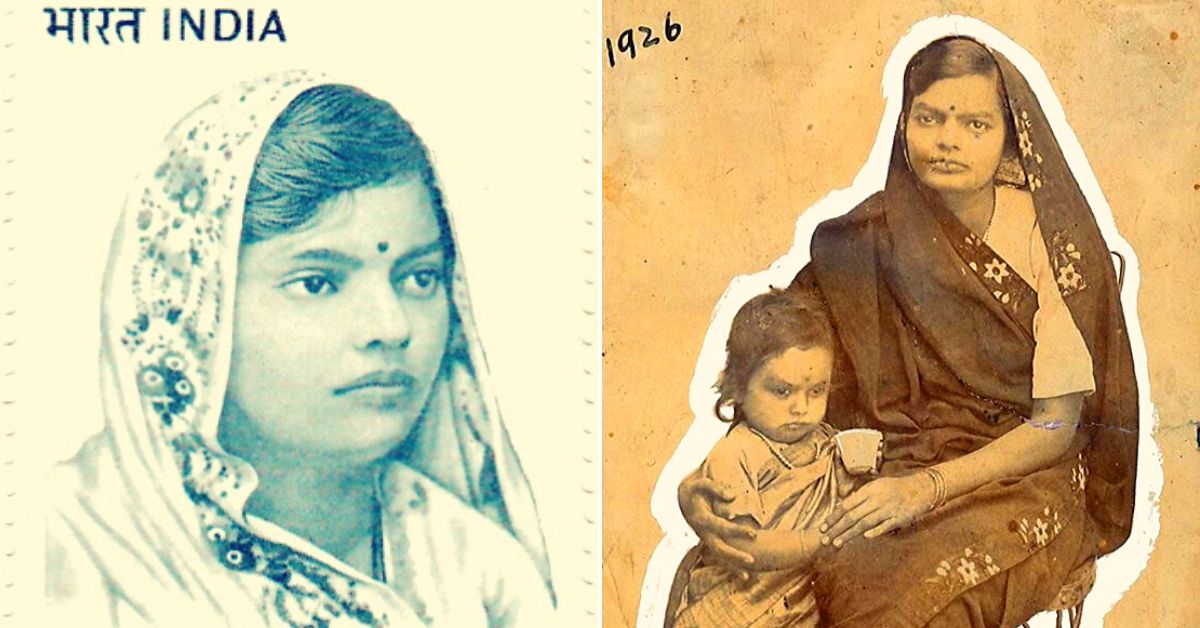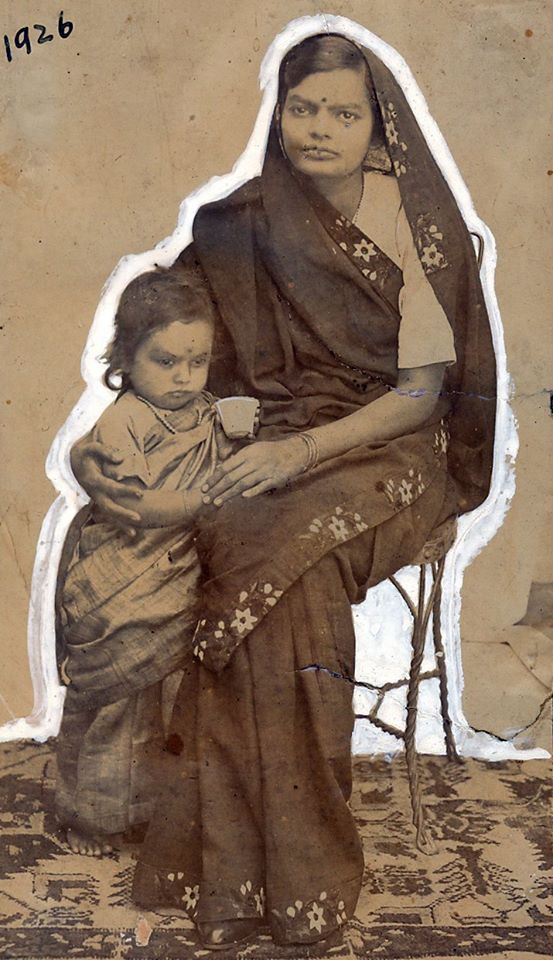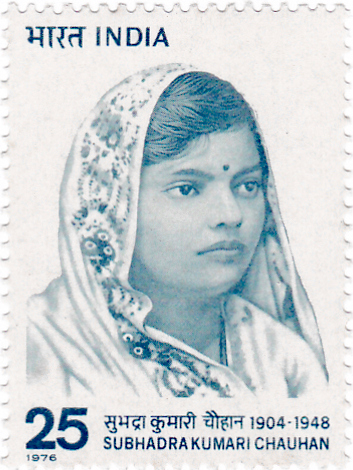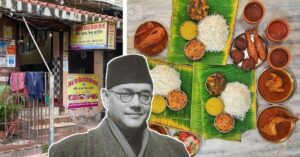Ghoongat, Untouchability, Dowry: This Forgotten ‘Jhansi Ki Rani’ Fought Them All
Heard the famous lines 'Khoob Ladi Mardani, Woh Toh Jhansiwali Rani Thi'? We recall the legendary woman who not only penned this line but also sacrificed nearly everything for the freedom struggle.

I was in school when I came across an immortal line of poetry which read, “Khoob Ladi Mardani, Woh toh Jhansi wali Rani Thi’‘ penned by legendary Hindi poet and freedom fighter Subhadra Kumari Chauhan.
While many column inches have been dedicated to the life of Lakshmibai, the Rani (Queen) of Jhansi, a leading figure in the First War of Independence in 1857, little is known about the poet who probably did more to keep her memory alive.
A glance at the life of Subhadra Kumari Chauhan will give many the impression that she lived her own life in the mould of the very woman she wrote about. In her own way, she dedicated herself to the freedom struggle and paid a very dear price for it.
Rebel With a Cause
Subhadra was born on August 16, 1904, into a zamindar family in Nihalpur village, Allahabad district, and eschewed tradition and convention right from the start.
Even though her family practised untouchability at home, she made it a point to actively engage with the domestic helpers in completing their chores.
In school, Subhadra was a prodigy of sorts penning her first poem when she was just nine years old. She was a few classes senior to Mahadevi Verma, who would also go on to become a famous Hindi poet. In between classes, the duo would write poems and thus began a friendship that would last till her premature death at the age of 44.
After passing secondary school exams at the age of 15, she married Lakshman Singh Chauhan, a member of various social reform movements from Jabalpur, Madhya Pradesh, who participated in campaigns against the dowry system and the wearing of the veil, i.e., ghoonghat or purdah.
In Subhadra’s parental home, women were forced to wear a ghoonghat. Following her wedding, Subhadra gave it up tuck to her guns even though this move caused an uproar in both extended families.

An Ardent Supporter of the Freedom Struggle
In 1921, the couple joined the Non-Cooperation Movement and led the Jhanda Satyagraha in Jabalpur two years later, when the Indian national flag was hoisted all over the city. Subhadra was pregnant with their first child when she was imprisoned for the first time in 1923 but was released a few months later because of her pregnancy.
Besides engaging in various activities supporting the freedom struggle, she also wrote nearly 100 poems and 50 short stories through these turbulent years that ran well into the 1930s. She would write on subjects like caste discrimination, dowry system, gender inequality and class.
Among her most famous works is a collection of poems titled Mukul, which was published in 1930. This collection contains the legendary Jhansi Ki Rani poem. Politically, she was actively managing the women’s section of the Madhya Pradesh Congress Committee. In 1936, she was even elected as a member of the Legislative Assembly of the erstwhile Central Provinces.
Her next significant involvement with the freedom struggle came in 1942 with the Quit India Movement. By that time, however, both Subhadra and her husband Lakshman had five children—and the youngest was a toddler who had a cleft palate that impaired her speech.
Lakshman was arrested by the colonial administration, while Subhadra took her children to Bombay (Mumbai), where she single handedly managed everything–from doctor visits to being an active part of the Quit India Movement while also battling for her husband’s release.
Eventually, the administration caught up to Subhadra and arrested her. By then, she had prepared her eldest daughter Sudha to look after her siblings, leaving behind enough rations for them.
Despite her struggles, Subhadra actively worked for the welfare of her fellow prisoners.
On occasions, she would give up her meals to other inmates suffering brutal punishment. Nonetheless, it was a life-threatening illness that eventually got her out of prison a few months later.
Failing health notwithstanding, she was once again elected to the legislative assembly of the Central Provinces and continued to break down social barriers in her own immediate life.
On one occasion, she attended the wedding of her domestic help’s daughter, which caused much consternation among the elders present there because of her decision to eat together with other workers present, notes this Live History India article. On another occasion, Subhadra supported her daughter Sudha’s decision to marry Amrit Rai, the son of legendary literary figure Premchand. Despite marrying out of their caste and the consternation it caused among certain relatives and the larger society, Subhadra backed her daughter all the way.

Setbacks
Even though Subhadra and her husband witnessed the fulfillment of a long standing dream when India attained Independence, the communal disharmony and violence that ensued following Partition deeply saddened them.
Another setback was the cruel assassination of Mahatma Gandhi in January 1948. Despite these setbacks, they promised to continue working towards establishing communal harmony and nation-building.
Sadly, a month later, when Subhadra was returning to Jabalpur from Nagpur after attending an educational conference, she suffered a terrible accident and passed away at the age of 44.
Keeping her memory alive
Unfortunately, Subhadra isn’t as revered as she should be, but her daughter Sudha and grandson Prof Alok Rai are doing their best to maintain her legacy. Mila Tej Se Tej (As Effulgence Met Effulgence), a book written by Sudha, chronicles her mother’s life and times, while Prof Alok Rai is translating her memoirs into English.
There is no question a lesser person would have crumbled under the societal, familial and political pressure that she endured for most of her life. But she didn’t let any of that get in her way in the fight against colonial rule.
In her very own way, she was the Jhansi Ki Rani of the 20th century.
Also Read: When Their Men Demurred, Here’s How 1000’s of Manipuri Women Battled the British
(Edited by Gayatri Mishra)
Like this story? Or have something to share? Write to us: [email protected], or connect with us on Facebook and Twitter.

Similar Story

Netaji Bose’s Favourite Eatery Has Been Serving Traditional Delicacies for Over 100 Years
The Swadhin Bharat Hindu Hotel in Kolkata, started by Mangobindo Panda, is a century-old pice hotel where Indian freedom fighters like Netaji Subhas Chandra Bose would enjoy Bengali delicacies.
Read more >
If you found our stories insightful, informative, or even just enjoyable, we invite you to consider making a voluntary payment to support the work we do at The Better India. Your contribution helps us continue producing quality content that educates, inspires, and drives positive change.
Choose one of the payment options below for your contribution-
By paying for the stories you value, you directly contribute to sustaining our efforts focused on making a difference in the world. Together, let's ensure that impactful stories continue to be told and shared, enriching lives and communities alike.
Thank you for your support. Here are some frequently asked questions you might find helpful to know why you are contributing?


This story made me
-
97
-
121
-
89
-
167












